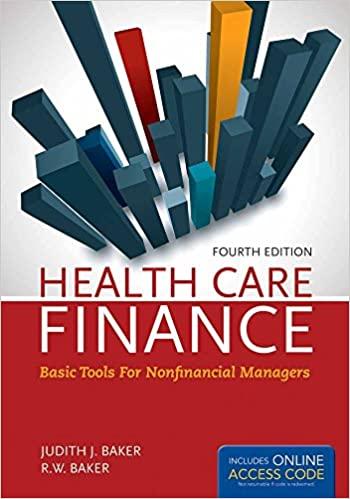Question
Question Imagine you are a new graduate employed on a management training programme with a large company, producing educational toys, called Learning Space plc. You
Question
Imagine you are a new graduate employed on a management training programme with a large company, producing educational toys, called Learning Space plc. You are currently working in the management accounting section of the Finance Department, working on some budgeted figures of two proposed new products, a plastic toy called My Glittery Unicorn and an educational game How does your Garden Grow. Your company wants to invest in the equipment needed to produce a new toy for this seasons Christmas toy market, but it only has 7,000,000 of available capital to invest and so only one product can be chosen. Production will begin in June 2021 and Sales to retail customers will cease in December 2021.
Your manager, Mr Ahmed, has asked you to create a PowerPoint presentation that evaluates both products to inform senior management in their selection decision. He has asked you to keep the presentation to a maximum of 15 slides and include information on: the profitability, the cash flow implications and the investment return of both products. He has alerted you to the fact that Ms Smith, the Director of Marketing, favours My Glittery Unicorn because it is more likely to achieve her departments unit sales objectives.
Your budgeted figures are as follows:
| Budgeted figures | My Glittery Unicorn | How does your Garden Grow | ||
| Sales units per month / Sales price | 300,000 (Jul - Aug) | 20/Unit | 300,000(Jul to Dec incl.) | 15/Unit |
| 400,000 (Sept - Nov) | ||||
| 100,000 (Dec) | ||||
| Credit period | 60 days for 80% of sales | Cash on delivery (COD) for 20% of sales | 30 days for 20% of sales | Cash on delivery (COD) for 80% of sales |
| Direct material costs | 6 / unit | 30 days credit from suppliers | 3 / unit | 30 days credit from suppliers |
| Direct labour | 4 / unit | Paid in the same month | 2 / unit | Paid in the same month |
| Variable overheads | 2 / unit | Paid in the same month | 1 / unit | Paid in the same month |
| Fixed costs | 100,000 (May) | Paid in the same month | 100,000 (May) | Paid in the same month |
| 500,000 per month (Jun Dec) | 500,000 per month (Jun Dec) | |||
| Depreciation | 1,000,000 per month | June to December incl. | 1,000,000 per month | June to December incl. |
Eighty per cent of the My Glittery Unicorn production each month will be sold to major toy retailers who demand a 60 day credit period, with the remaining items being sold on cash on delivery terms to small independent retailers. The opposite marketing strategy has been devised for How does your Garden Grow which will be mainly sold to small independent retailers selling eco-products on a cash on delivery basis.
The purchase of raw materials for the first months production will commence in May 2021 with 30 days credit having been agreed with suppliers. Production will start in June 2021, when the direct labour and variable overheads will be incurred. These are paid for in the same month. Each months production will be sold in the following months with no items remaining in stock, e.g. Novembers production will be sold in December, etc.
Fixed costs doesnt include the launch promotion costs f 500,000 which will be paid in September 2021.
The business has agreed to invest 7,000,000 in buying the equipment needed to set up the project and Mr Ahmed has also told you that all projects in My Learning Space have a cost of capital of 10% and must have a positive Net Present Value.
Requirement
- Projected profitability of each product (from May to end of December 2021)
- Projected break-even point for each product (between May and December 2021)
- Cash budget for each product (from May 2021 to end of February 2022)
- Assessment of the investment potential of each product using NPV and payback period (from May 2021 to end of February 2022)
- Recommendation (Which product is suitable for company with reasons)
For NPV Calculations
To calculate the Net Present Value (NPV) of monthly net cashflows at an annual cost of capital of 10%, you need to use the figures for a monthly cost of capital of 0.8%.
(This was calculated: 10%/121+0.1 = 0.7945 = rounded 0.8% - not essential understanding)
Period (month)
0.8%
1
0.992
2
0.984
3
0.976
4
0.969
5
0.961
6
0.953
7
0.946
8
0.938
9
0.931
10
0.923
11
0.916
12
0.909
Not essential learning but to calculate these figures:
Period 1 = 1/(1+0.008)1=0.99206
Period 2 = 1/(1+0.008)2 = 0.98418 etc
Step by Step Solution
There are 3 Steps involved in it
Step: 1

Get Instant Access to Expert-Tailored Solutions
See step-by-step solutions with expert insights and AI powered tools for academic success
Step: 2

Step: 3

Ace Your Homework with AI
Get the answers you need in no time with our AI-driven, step-by-step assistance
Get Started


